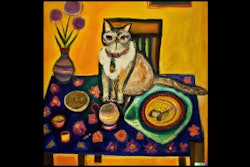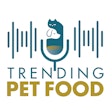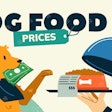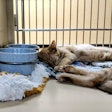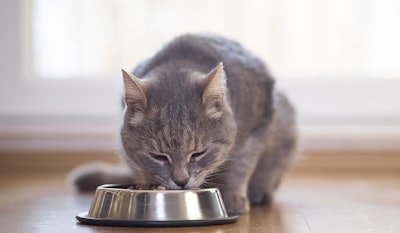
A recent survey by Cargill found the number cat owners continue to rise, showing 59% of all pet parents now own a cat, with more than one-third owning more than one. This growth can be attributed to cats fitting seamlessly into modern pet parents’ busy and urban lifestyles, noted the study.
Cargill surveyed 1,068 cat owners from four countries: the U.S., UK, France and Germany, and found nearly 75% of cat parents look for their cat’s food to help address specific health challenges. While these consumers believe cat food plays an important role in supporting their pet’s health, only 40% reported being satisfied with the current offerings on the market – fueling growth opportunities for pet product makers.
“The pet food market has traditionally revolved around dogs, but with the number of cat-loving households rapidly on the rise, it’s clear that cats are having a moment – and brands are taking notice,” said Chad Wethal, senior global marketing manager, Pet & Lifestyle for Cargill’s Animal Nutrition business. “A noticeable gap exists between what is currently on the market and what cat parents are looking for, opening the space for new solutions like postbiotics that can deliver the science-backed health benefits they are seeking.”
6 key insights from Cargill's survey
- Cat parents offer a variety of foods to their cats, with nearly 9 in 10 cat parents purchasing dry food for their cats. Two-thirds, however, also purchase canned food, while one-half also purchase wet food in a pouch.
- Cat parents highly value the quality of the ingredients above price and type of food (dry, wet, etc).
- Nearly one-half of all cat parents are concerned about their cat developing a health condition, ranking vomiting, immune strength and loose stools as the top three.
- Nearly three-fourths of cat parents look to food to address specific health challenges for their cats, with gut/digestive health the clear leader (46%), followed by immune health (37%) and skin and coat health (32%).
- The most impactful, on-pack ingredient claims for cat parents were “natural” and “ingredient source."
- 83% of cat parents who value science and research behind the claims made by cat food and treat companies are looking for evidence found in multiple research studies, followed by cat-specific and in-home use studies.
Cargill offers TruMune postbiotic, which offers multiple trending health claims — like gut health, balanced immunity and pet vitality — packed into a single, low-inclusion ingredient backed by several pet-specific research studies.
“Our Cargill Cat Parent Survey and new Feline Postbiotic Clinical Research are a testament to Cargill’s commitment to understanding the unique needs of dogs and cats and the role their gut plays in supporting lifetime health and wellness," said Wethal. "This exciting new research builds on an already strong foundation of pet-specific research showing that Cargill’s postbiotics help pets live more healthy and active days. It means more innovation possibilities for pet food brands and peace of mind for pet parents."
According to Petfood Industry's Top Companies, Cargill is heavily involved in a range of food, agricultural, financial and industrial interests and owns several brands of pet food. The Loyall brand has patented the Opti-Cook process to optimize quality, palatability and starch digestion. Loyall is available in the U.S., Canada, Italy and Korea; River Run is solely in the US; and the Dogui, PetMaster, Keycan, and Gati brands are offered in Mexico and Central America. The entire Cargill Animal Nutrition division includes 250 factories in 70 countries with 155,000 employees.





